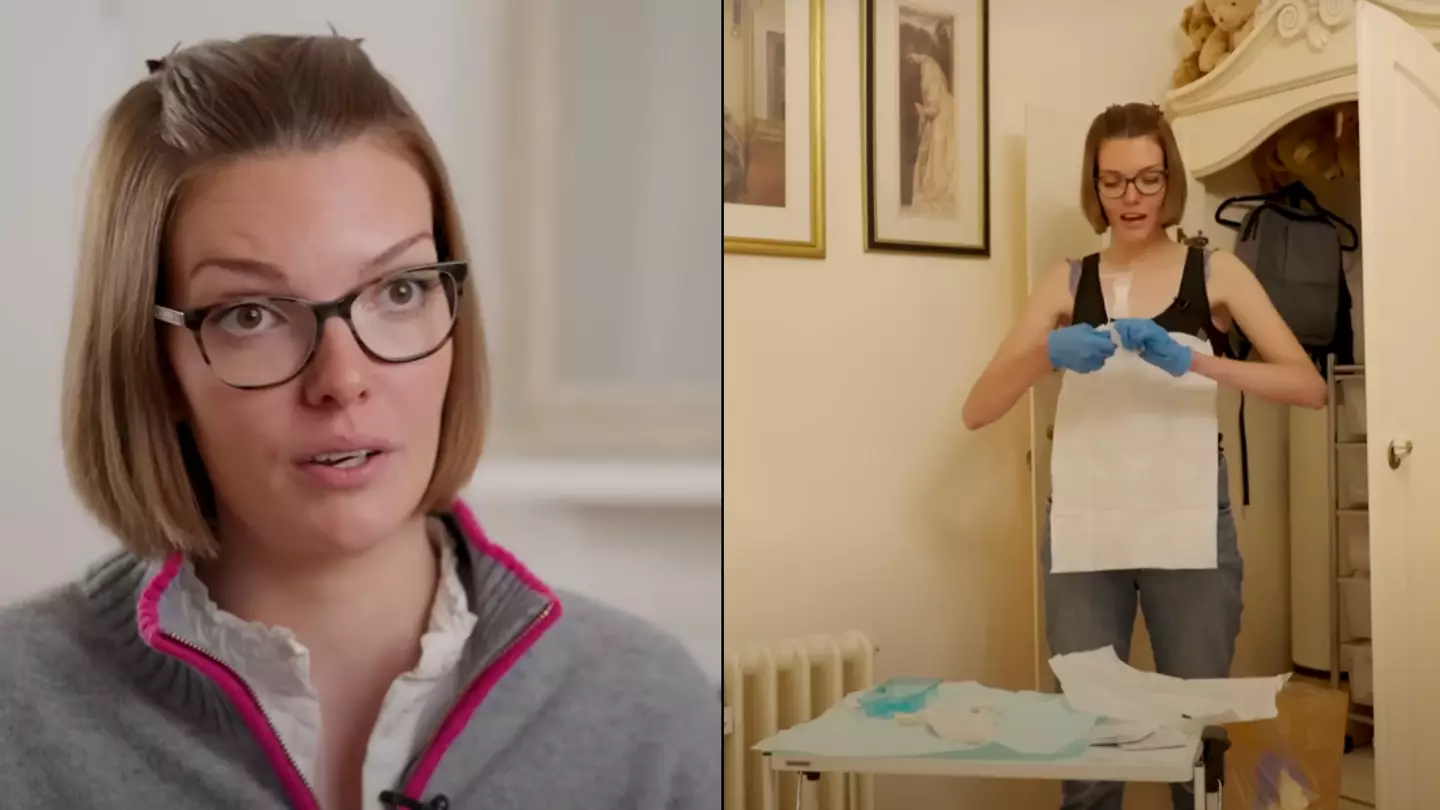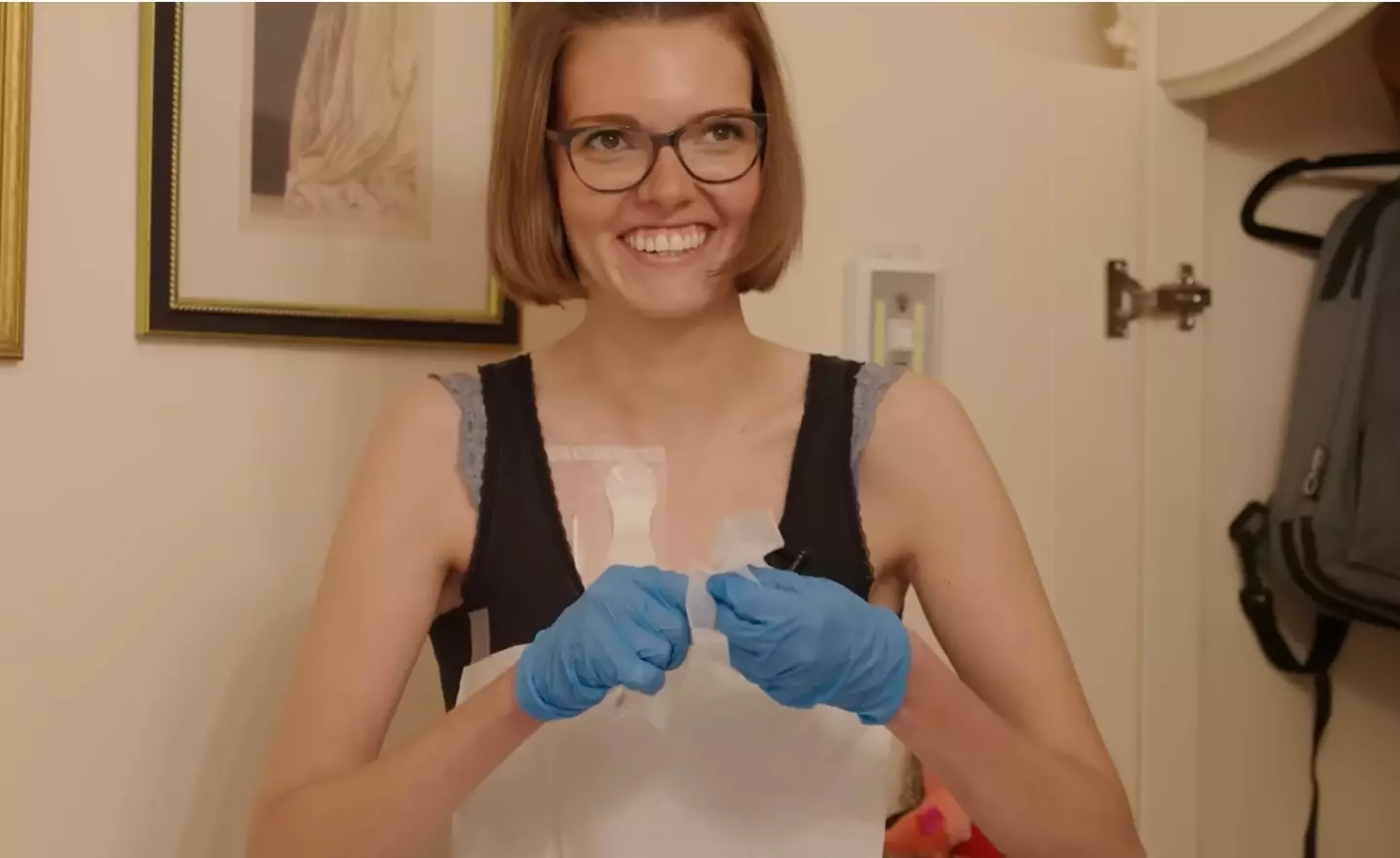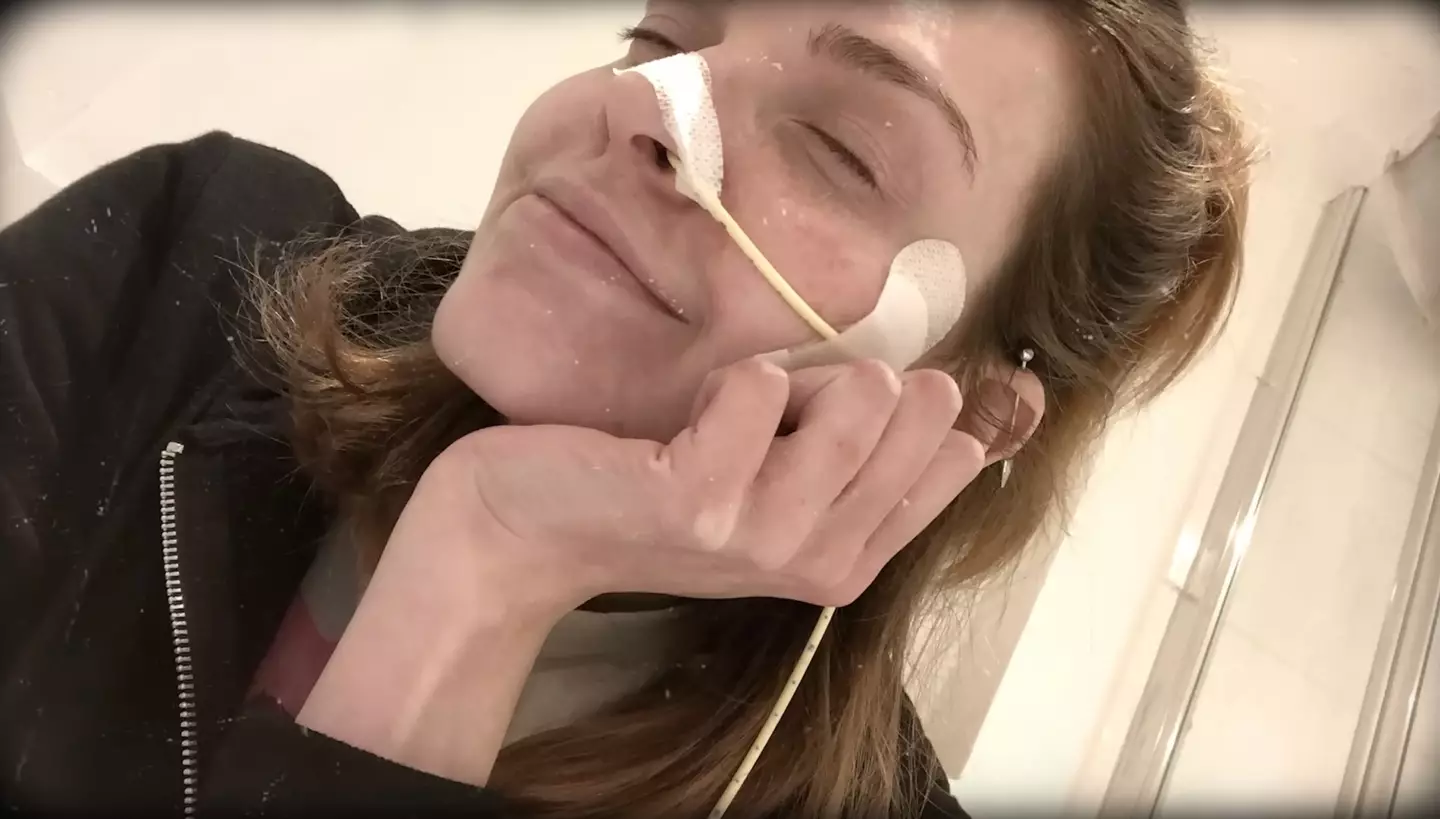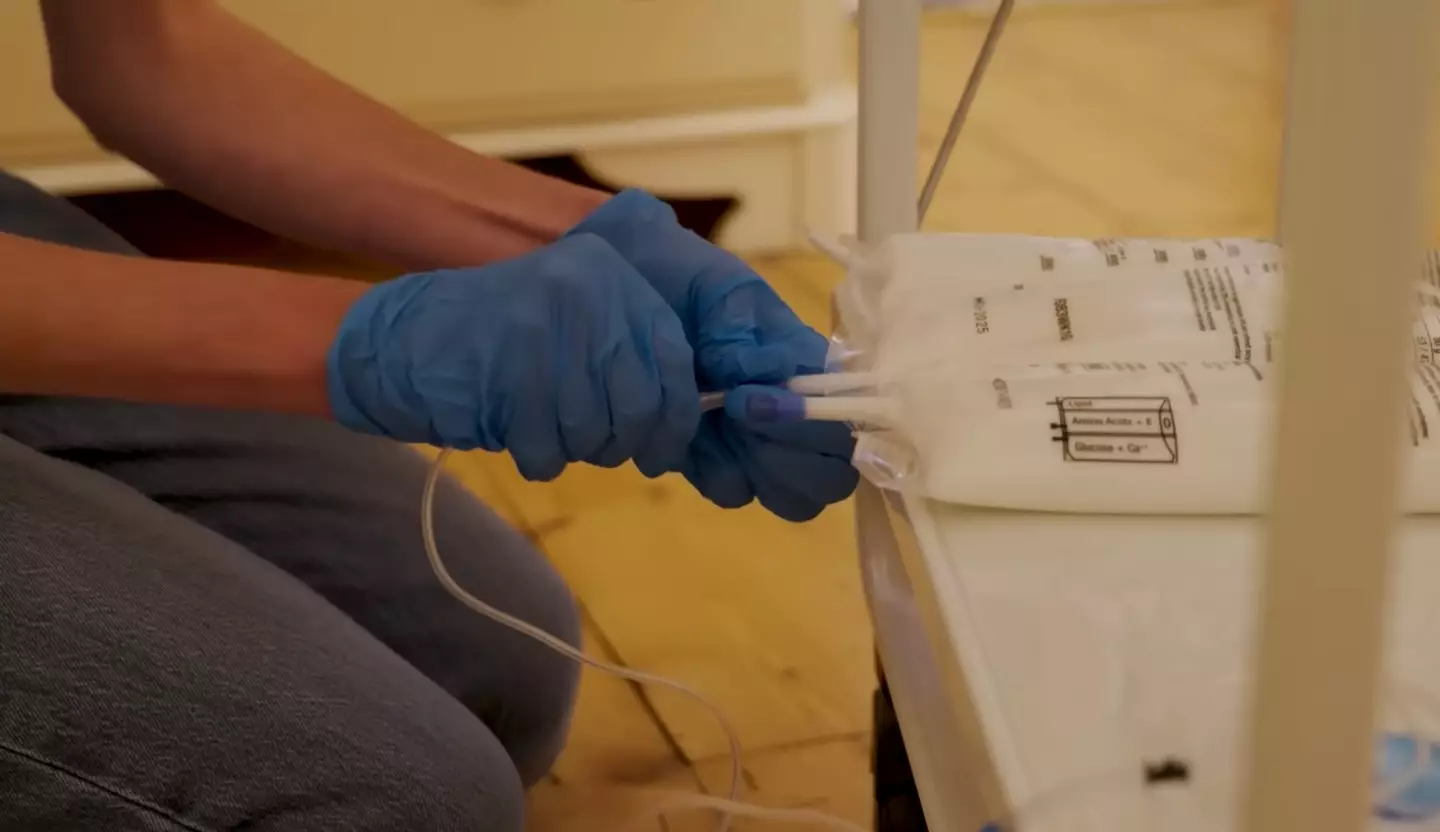Celia Chartres-Aris suffers from an extremely rare condition which only one in 70 million people

The enjoyment of eating a good meal washed down by your favourite drink is one of the finer things in life, but it’s something which we tend to take for granted and treat more as a chore.
But for Celia Chartres-Aris, savouring the taste of her food and wetting her whistle with a refreshing beverage is a thing of the past – as not a single piece of grub has passed her lips in the last four years.
The 28-year-old suffers from an extremely rare condition, which only one in 70 million people have, called Loeys-Dietz syndrome (LDS), but incredibly remains extremely positive as she says she’s just got to ‘crack on’ with it.
She was diagnosed with the debilitating connective tissue disorder as a teenager and says she is now essentially living on borrowed time, as the average life expectancy for someone with LDS is just 36-years-old.
Celia explained she had been forced to ‘give up on the prospect that everything is going to be fine’ and has had to come to terms with the fact that it could happen tomorrow, or years from now – all she knows is, it will be ‘out of the blue’.

Celia Chartres-Aris hasn’t eaten or drank in four years (YouTube/Truly)
During an interview with Truly detailing how LDS has affected her, the Brit explained: “Many of my organs have now either not formed properly or have started shutting down.
“It causes a lot of pain, chronic pain, it makes me incredibly tired and also I’m incredibly susceptible to various different illnesses.
“I feel incredibly frustrated because I’m in my 20s and there’s so many things that I can’t do in my life that I wish I could do and I don’t have the energy to do anymore,” she continued.
“So when doctors are talking to me about progression, it’s very very difficult for them to do because the condition is so rare – it’s about one in every 70 million people that have it – the one definite that I do know is an aortic dissection is what’s going to kill me…which is where, very unpleasantly, your aorta detaches itself from your heart.”

She was born with Loeys-Dietz syndrome (YouTube/Truly)
Celia told how her condition turned things up a notch four years ago, leaving her body unable to push food through her intestinal system properly – resulting in her being unable to consume food or drink as she normally would.
Doctors fitted her with a Hickman line, which goes in ‘through her chest, up into her jugular and then down into her aorta’, which she describes as similar to a ‘permanent cannula’ which supplies her body with what it needs.
The young woman explained that it administers a medication called total parenteral nutrition (TPN), which is brimming with ‘food, water calories, nutrients, vitamins’ and is often used to manage and treat malnourishment.
She explained that if even a ‘single piece of dust’ infiltrated the TPN bags, it could be fatal – so she has to ensure she keeps everything ‘incredibly sterile’ and that her house is always spick and span.

Celia’s total parenteral nutrition feed runs for ten hours a day (YouTube/Truly)
Unfortunately for Celia, she also has to religiously wake up at 6.45am every single day to keep to her strict medication schedule, so she ‘hasn’t had a lie in about four years’ either.
She also has to set ‘various alarms’ every time she leaves the house to remind her of the timings, as well as taking a hefty kit of emergency supplies with her everywhere.
The TPN feed runs from 14 hours throughout the day, so she spends 10 hours ‘unplugged’ from it where she is free to go about her business – until one of her alarms starts ringing.
Celia, who’s brother and dad also suffer from LDS, says she dreams that doctors will one day ‘find a way to fix me so I can eat something again’, but she’s also came to terms with the fact these are the cards she has been dealt.
Despite the discomfort she lives with, the inspiring Brit is also a disability-rights activist who works with the government to change legislation so that the country is more inclusive for those with additional needs.
Celia added: “I don’t want to reach the end of my life and think, ‘Well it wasn’t really worth it was it? It was so painful and it was so awful.’
“But I also hope to leave a little mark on the world to say I was here, and I hope I made a difference.
“I want people to take away from my story kindness and empathy towards other people – chronic pain and chronic fatigue for your entire life takes its toll on you.”





